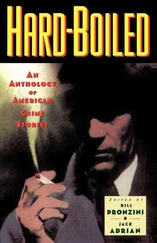“A Concerned Man,” Teacher Fei signed his message. A different opinion was not what these women would want to hear, but any man with a brain had to accept his responsibility to make the truth known. A girl among the group of middle schoolers glanced at Teacher Fei and then whispered to a companion, who looked up at him with a snicker before letting herself be absorbed again by the screen. An old man with wrinkles and without hair. Teacher Fei assessed himself through the girls’ eyes: bored and boring, no doubt undesirable in any sense, but who could guarantee the girls that the flirtatious young man online who made their hearts speed was not being impersonated by an equally disgraceful old man?
—
Later that evening, when Teacher Fei had wrung a warm towel to the perfect stage of moistness and passed it to his mother, who sat on another towel on her bed, a curtain separating her partly undressed body from him, he thought about the two girls and their youthful indifference. One day, if they were fortunate enough to survive all the disappointments life had in store for them, they would have to settle into their no-longer-young bodies.
“Do you remember Carpenter Chang?” Teacher Fei’s mother asked from the other side of the curtain. Three times a week, Mrs. Luo bathed Teacher Fei’s mother, and on the other evenings Teacher Fei and his mother had to make do with the curtain as he assisted her with her sponge bath and listened to her reminisce about men and women long dead. Half an hour, and sometimes an hour, would pass, his mother washing and talking on one side of the curtain, him listening and sometimes pressing for details on the other side. This was the time of day they talked the most, when Teacher Fei knew that although his mother’s body was frail and her mind tangled by memories, she was still the same graceful woman who, with her unhurried storytelling, knew how to take the awkwardness out of a situation in which she had to be cared for by a grown son who had remained a bachelor all his life.
Having his mother as his only companion in old age was not how Teacher Fei had envisioned his life, but he had accepted this with little grievance. He enjoyed conversations with her, for whom things long forgotten by the world were as present as the air she shallowly breathed: two apprentices pulling a giant paper fan back and forth in a barbershop to refresh the sweating customers, the younger one winking at her while her grandfather snored on the bench, waiting for his daily shave; the machine her father had installed in the front hall of their house, operated by a pedaling servant, which cut a long tube of warm, soft toffee into small neat cubes that, once hardened, were wrapped in squares of cellophane by her and her four sisters; the cousins and second cousins who had once been playmates, fed and clothed and schooled alongside her and her sisters when they were young, but who later claimed to have been exploited as child laborers by her capitalist father; her wedding to Teacher Fei’s father, attended by the best-known scholars of the day and lamented by most of her relatives, her mother included, as a bad match.
Teacher Fei’s father had been the oldest and poorest of his mother’s suitors. Twenty years her senior, he had worked as a part-time teacher in the elite high school that she and her sisters attended, and when she rejected him a renowned scholar wrote to her on his behalf, assuring the sixteen-year-old girl of what was beyond her understanding at the time: that Teacher Fei’s father would become one of the most important philosophers in the nation and, more than that, would be a devoted husband who would love her till death parted them.
Teacher Fei had always suspected that his mother had agreed to see his father only to appease the scholar, but within a year the two had married, and afterward, before Teacher Fei’s father found a university position, his mother used her dowry to help her husband support his parents and siblings in the countryside. Unable to become pregnant, she adopted a boy — Teacher Fei — from the long line of nephews and nieces who lived in close quarters in her husband’s family compound, which had been built and rebuilt in the course of four generations. She had never hidden this fact from Teacher Fei, and he remembered being saddened after a holiday in his father’s home village when he was eight and finally understood that he alone had been plucked from his siblings and cousins. His relatives, birth parents included, treated him with respect and even awe. It was his good fortune, his mother had said, comforting him, to have two pairs of parents and two worlds.
Poor man, she said now, and for a moment, lost in his reverie, Teacher Fei wondered if he had told her about the avenging daughter. Then he realized that his mother was still talking about the carpenter, who had once carved five coffins for his children, all killed by typhoid within a week. The carpenter’s wife, who had been hired as a wet nurse for Teacher Fei when he first left his birth mother, had returned to the house years later with the news. Even as a ten-year-old, Teacher Fei could see that the woman had been driven out of her mind and would go on telling the story to any willing ears until her death.
It’s the innocent ones who are often preyed upon by life’s cruelty, Teacher Fei replied, and when his mother did not speak he recounted the girl’s story from the magazine. He paused as his mother, dressed in her pajamas, pulled the curtain aside. All set for the dreamland, she said. He did not know if she had heard him, but when he tucked her in she looked up. “You should not feel upset by the girl,” she said.
He was not, Teacher Fei replied; it was just that he found the girl’s hatred extraordinary. His mother shook her head slightly on the pillow, looking past his face at the ceiling, as if she did not want to embarrass him by confronting his lie. “The weak-minded choose to hate,” she said. “It’s the least painful thing to do, isn’t it?”
She closed her eyes as if exhausted. Rarely did she stay in a conversation with him with such clarity these days, and he wondered whether she had chosen to neglect the world simply because it no longer interested her. He waited, and when she did not open her eyes he wished her a night of good sleep and clicked off the bedside lamp.
“The weak-minded choose to hate,” Teacher Fei wrote in his journal later that night. For years, he’d had the habit of taking notes of his mother’s words. “I have nothing to say about this world,” he wrote, the line most often repeated in the journal. Twenty-five years ago, his father, after a long day of musing in his armchair, had said the same thing, his final verdict before he swallowed a bottle’s worth of sleeping pills. Teacher Fei’s mother had not sounded out of sorts when she had called him that evening to report his father’s words, nor had she cried the following morning on the phone with the news of his father’s death. Teacher Fei suspected that if his mother had not been an active accomplice, she had, at the least, been informed of the suicide plan; either way it made no difference, for the border between husband and wife had long been obscured in his parents’ marriage. What surprised Teacher Fei was his mother’s willingness to live on. He visited her daily after his father’s death and, within a year, moved in with her. He recorded and analyzed every meaningful sentence of hers, looking for hints that the words were her farewell to the world. He was intentionally careless about his pills, and hers, too, as he believed she must have been in his father’s final days — they had always been a family of insomniacs — but by the fifth anniversary of his father’s death, Teacher Fei stopped waiting. She had nothing to say about the world, his mother told him that day, more out of amusement than resignation, and he knew then that she would not choose to end her life.
Читать дальше










![Женя Джентбаев - neo futura [stories]](/books/692472/zhenya-dzhentbaev-neo-futura-stories-thumb.webp)

